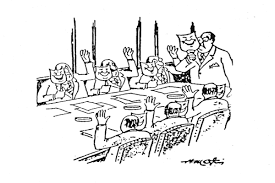When we hear the word ethics, some of the things that pop into our mind is values, morals and principles. Good judgement and altruistic actions are what we relate with right work ethics. Then what goes wrong when we have to implement this conduct?
Ethics can have many sources- from spiritual to organizational culture. HR generally focuses on the work ethics, i.e. the duty of the employer and the employees towards the welfare of each other. These moral obligations contribute to the organizational and business goals as they promote equality, employee loyalty and maintain the internal discipline of the firm without external forces. With friendlier working space and equal rights, litigation costs plummet and the reputation of the company as an employee-friendly organization spikes up.
So what these ethics basically demand are equal and fundamental rights, privacy but also support, justice and safety. The employees want to be treated fairly and with integrity. Open door policy, feedback, complaint redressal, equal opportunities and transparency in the office are the basis of work ethics.
What these ethics ensure is a happy workplace. 2 small words but they carry a deep meaning. A happy workplace is where employees feel satisfaction, they’re treated with honesty and respect and in return, the firm earns loyalty and a good reputation. It’s the place where work load is minimized and employee efficiency increases. It leads to a much more satisfied and larger consumer base and thus larger revenues which lead to happier stakeholders. And that is all a company aims for.
But for this Utopian vision to come true, we need a strong ethic system and a dedicated regulatory agency because if something cannot be imbibed from within, it has to be externally imposed. But all is well that ends well. A good HR policy can and will make a difference in the field of ethics and demeanor.





15 Comments. Leave new
well written
One of the core aspect of every organisation very well written
Well written
Ethics , a fundamental duty of any employee..nicely written.
being ethical in your work is imperative
Nice article
informative
Nicely written ?
Good efforts
very important aspect for an organisation !
very well written 😀
great work!
Excellently written!
nice
Just earning huge bucks isnt enough. Job satisfaction is way more important than salary. And ethics adds up to satisfaction.
Good work!